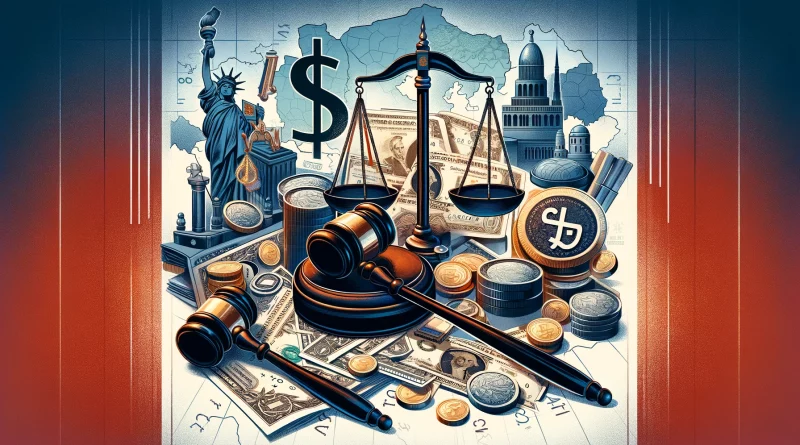Crackdown in Iraq: Local Banks Faced with US Dollar Transaction Prohibition
In a striking move, Iraq has imposed a prohibition on eight indigenous financial institutions, precluding them from partaking in transactions involving the US dollar. This measure is a component of a broader strategy aimed at curtailing illicit activities, including fraud, money laundering, and the unauthorized use of US currency. The timing of this decision closely follows the visit of a distinguished official from the US Department of the Treasury.
These institutions have been denied access to the daily US dollar auctions hosted by the Iraqi central bank. These auctions are a critical source of hard currency, especially crucial for a country like Iraq, where the economy heavily leans on imports. This move gains significance as it aligns with the US’s intensified efforts to monitor and control currency flows, particularly focusing on preventing the illegal channeling of funds to Iraq’s neighbor, Iran.
Iraq, standing at the crossroads of geopolitical interests, cherishes its reserves exceeding $100 billion in the US. It finds itself in a unique position, maintaining alliances with both the US and Iran. The country’s economic stability and its access to oil revenues hinge significantly on maintaining a favorable relationship with Washington.
The central bank of Iraq has officially disclosed a list of the financial institutions affected by this prohibition. The list includes prominent names such as Ahsur International Bank for Investment, Investment Bank of Iraq, Union Bank of Iraq, Kurdistan International Islamic Bank for Investment and Development, Al Huda Bank, Al Janoob Islamic Bank for Investment and Finance, Arabia Islamic Bank, and Hammurabi Commercial Bank.
Reactions from the heads of these institutions and their collective representation, the Iraq’s private bank association, remain pending. However, commendation has come from the US Treasury, highlighting the Central Bank of Iraq’s efforts in shielding its financial ecosystem from exploitation, thereby facilitating the integration of legitimate Iraqi banks into the global financial network.
This isn’t the first instance of such a crackdown. In July 2023, a similar prohibition was imposed on 14 banks, aimed at dismantling the clandestine network funneling US dollars to Iran through the Iraqi banking sector. This action stemmed from a request by Washington and involved discussions with both Iraqi and US officials.
While the banned institutions face restrictions on US dollar transactions, they retain the ability to operate and engage in transactions involving other currencies. The visit of Brian Nelson, the US Treasury Department’s principal sanctions strategist, to Baghdad underscores the gravity of the situation. Discussions revolved around fortifying both Iraqi and international financial systems against unlawful activities.
The US Treasury’s recent actions against Al-Huda Bank, accused of redirecting billions of US dollars to factions supported by Iran, further underline the critical nature of these measures. With the current Iraqi administration’s ascent to power, strongly backed by influential parties and armed factions with ties to Iran, the financial domain of Iraq is under heightened scrutiny.
Despite these challenges, international authorities have acknowledged the cooperation of Iraqi Prime Minister Mohammed Shia al-Sudani in implementing economic and financial reforms. These efforts are directed towards limiting Iran and its allies’ access to US dollars and aligning the Iraqi economy with global standards.


